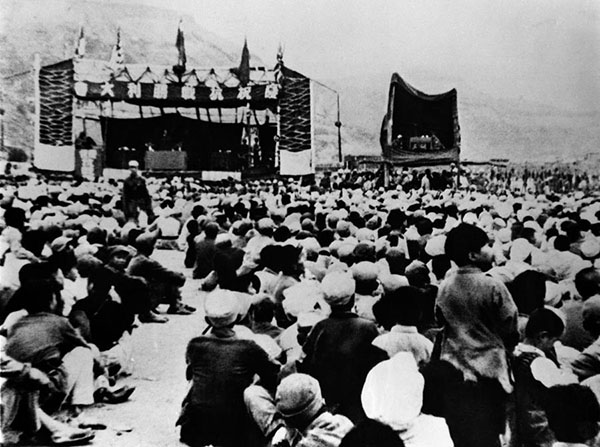Japan urged to obey rules under Potsdam Proclamation
(Xinhua) Updated: 2015-07-25 15:05
 |
|
A mass meeting celebrating Chinese people's victory over Japanese invaders during the War of Resistance Against Japanese Aggression in this August 14, 1945 file photo. [Photo/Xinhua] |
Zhao Jianwen, researcher with the Institute of International Law under CASS, underlined the sixth term of the document, saying that it demanded Japan eliminate militarism, both politically and mentally, which later became a core spirit of the ninth article of the Constitution of Japan.
The constitution reads "Japanese people forever renounce war as a sovereign right of the nation and the threat or use of force as means of settling international disputes."
"Japan should and must be locked up forever by the cage of the international law and its constitution," said Zhao.
However, what has been done by Abe's administration shows otherwise.
"The current Japanese government has adopted a wrong attitude towards history and deliberately violated the laws," noted Lyu Yaodong, researcher with Institute of Japanese Studies under CASS.
Lyu also added that the Potsdam Proclamation constituted the cornerstone of the post-war peace and security in the Asia-Pacific region and Japan recognizing the document was the precondition of the normalization of China-Japan relations.
"China, together with all the countries that have suffered a lot from the war, strongly urges Japan to carry out the Potsdam Proclamation terms and keep its promise." said Lyu.
- China warns Japan to keep their promise on its WWII surrender
- Japan 'violating' the Potsdam Declaration
- Abe's denial of Potsdam Proclamation no good for Japan's image
- July 26, 1945: China, the United States and Britain issue the Potsdam Proclamation
- Chinese President visits Cecilienhof Palace in Potsdam




